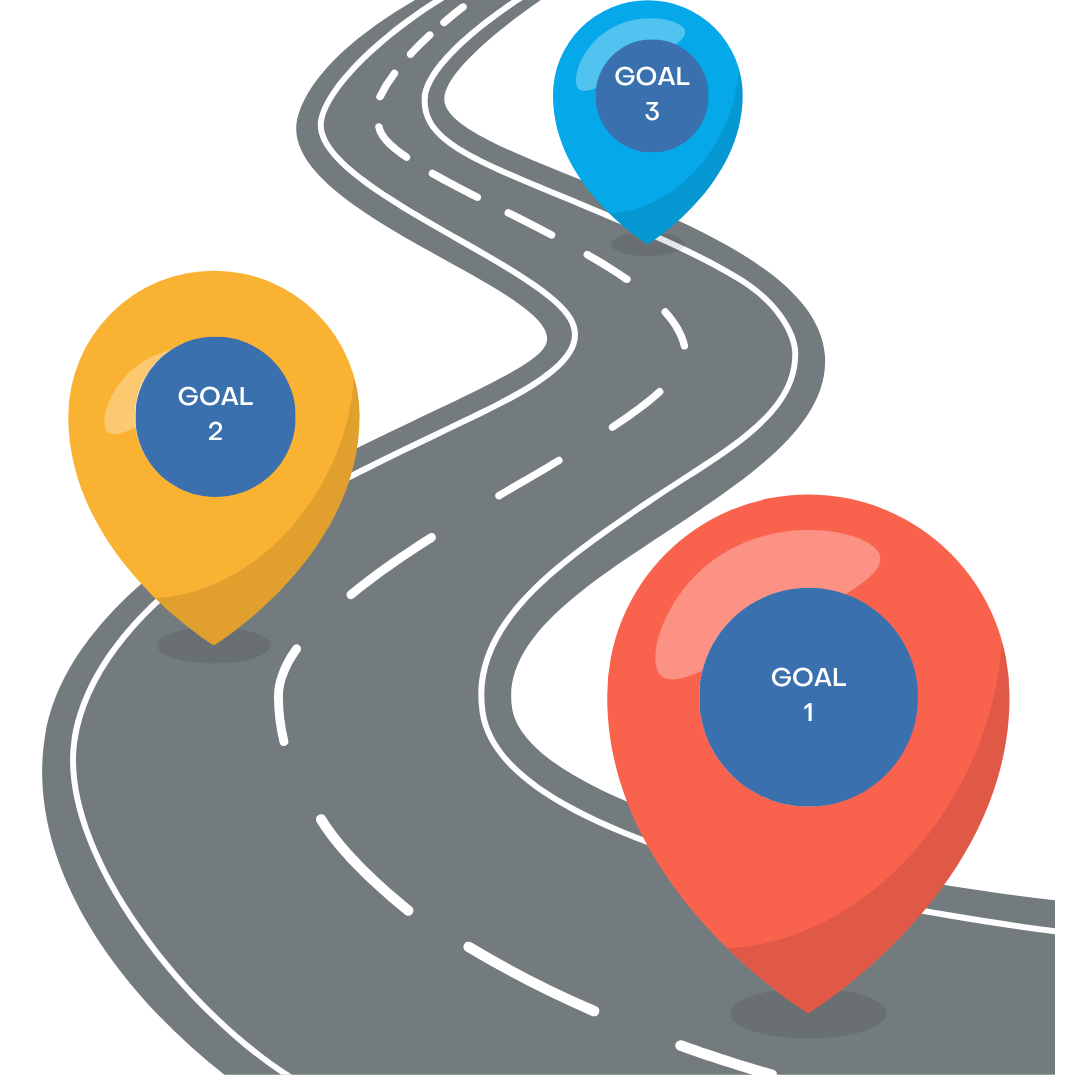Striking the Balance: Understanding Personal and Professional Goals to Achieve Long-Term Success
However you might define success, it must be noted that success extends beyond just a career or profession. It involves a delicate interplay between personal and professional goals, each contributing significantly to an individual's overall well-being and sense of accomplishment. In this article, we will delve into the distinctions between personal and professional goals, exploring their unique attributes and discussing why a harmonious balance between the two is essential for sustained success.
Defining Personal and Professional Goals:
Personal Goals: Personal goals are aimed at achieving the aspirations individuals have in their personal lives. These objectives may span various dimensions, such as health and fitness, relationships, self-improvement, and leisure. These goals can be tangible and intangible, such as maintaining a healthy lifestyle, fostering meaningful connections with loved ones, acquiring new skills or hobbies, or achieving a work-life balance.
Professional Goals: On the other hand, professional goals are specific targets individuals set within the context of their careers or chosen vocations. These objectives are often related to advancement, skill development, and accomplishments in the workplace. Professional goals may include securing a promotion, expanding one's skill set, completing a project successfully, or even starting and growing a business.
The Interconnectedness of Personal and Professional Goals:
While personal and professional goals may seem distinct, they are inherently interconnected. The achievements and challenges in one realm can significantly impact the other. For instance, a fulfilling personal life can contribute to increased motivation and productivity in the professional sphere, while career success can provide the resources and stability needed for personal pursuits.
Why Personal Goals Matter:
- Well-Being and Fulfillment: Personal goals are integral to an individual's overall well-being and sense of fulfillment. Achieving personal milestones, such as maintaining good health, nurturing relationships, and pursuing passions, contributes to a balanced and contented life.
- Motivation and Resilience: Pursuing personal goals can serve as a powerful motivator during challenging professional times. Personal accomplishments and positive experiences act as a source of resilience, enabling individuals to navigate setbacks and pressures in their careers.
- Work-Life Balance: Personal goals play a crucial role in establishing and maintaining a healthy work-life balance. This balance is essential for preventing burnout, enhancing mental health, and fostering sustained success in the professional arena.
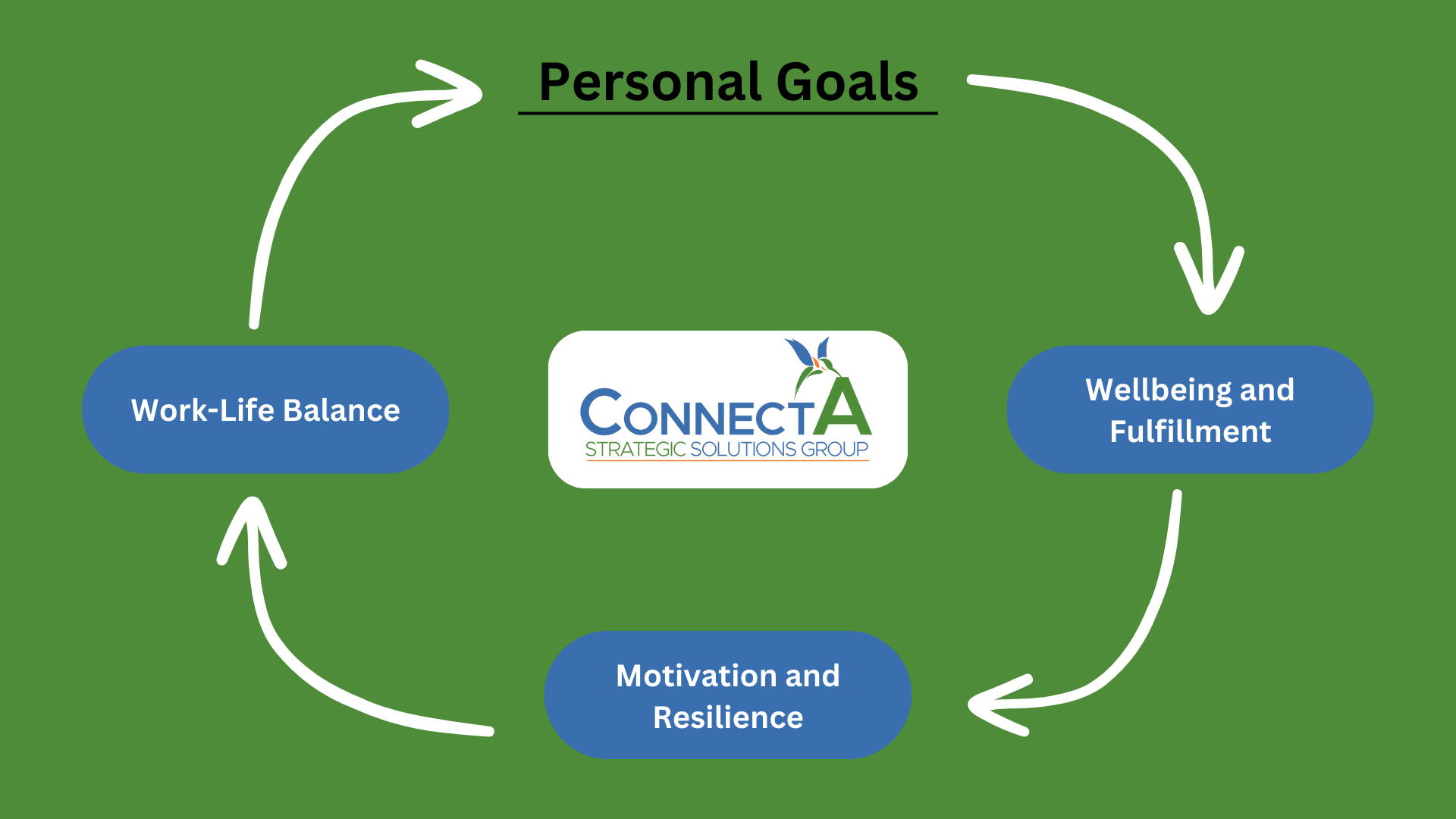
Why Professional Goals Matter:
- Career Growth and Advancement: Professional goals are fundamental to career growth and advancement. They provide a roadmap for individuals to climb the career ladder, take on leadership roles, and achieve the levels of success they aspire to in their chosen professions.
- Skill Development and Adaptability: Pursuing professional goals often involves acquiring new skills and staying updated with industry trends. This commitment to continuous learning enhances an individual's adaptability and competitiveness in the ever-evolving professional landscape.
- Financial Stability: Professional goals, especially those related to salary increases, promotions, or entrepreneurial endeavors, contribute to financial stability. Financial well-being is a critical component of overall life satisfaction and enables individuals to pursue their personal goals with greater ease.
The Pitfalls of Imbalance:
While both personal and professional goals are crucial, an imbalance between the two can lead to negative consequences. For instance, an obsessive focus on professional success at the expense of personal well-being may result in burnout, strained relationships, and compromised mental health. Conversely, neglecting professional goals may hinder financial stability and limit opportunities for personal growth.
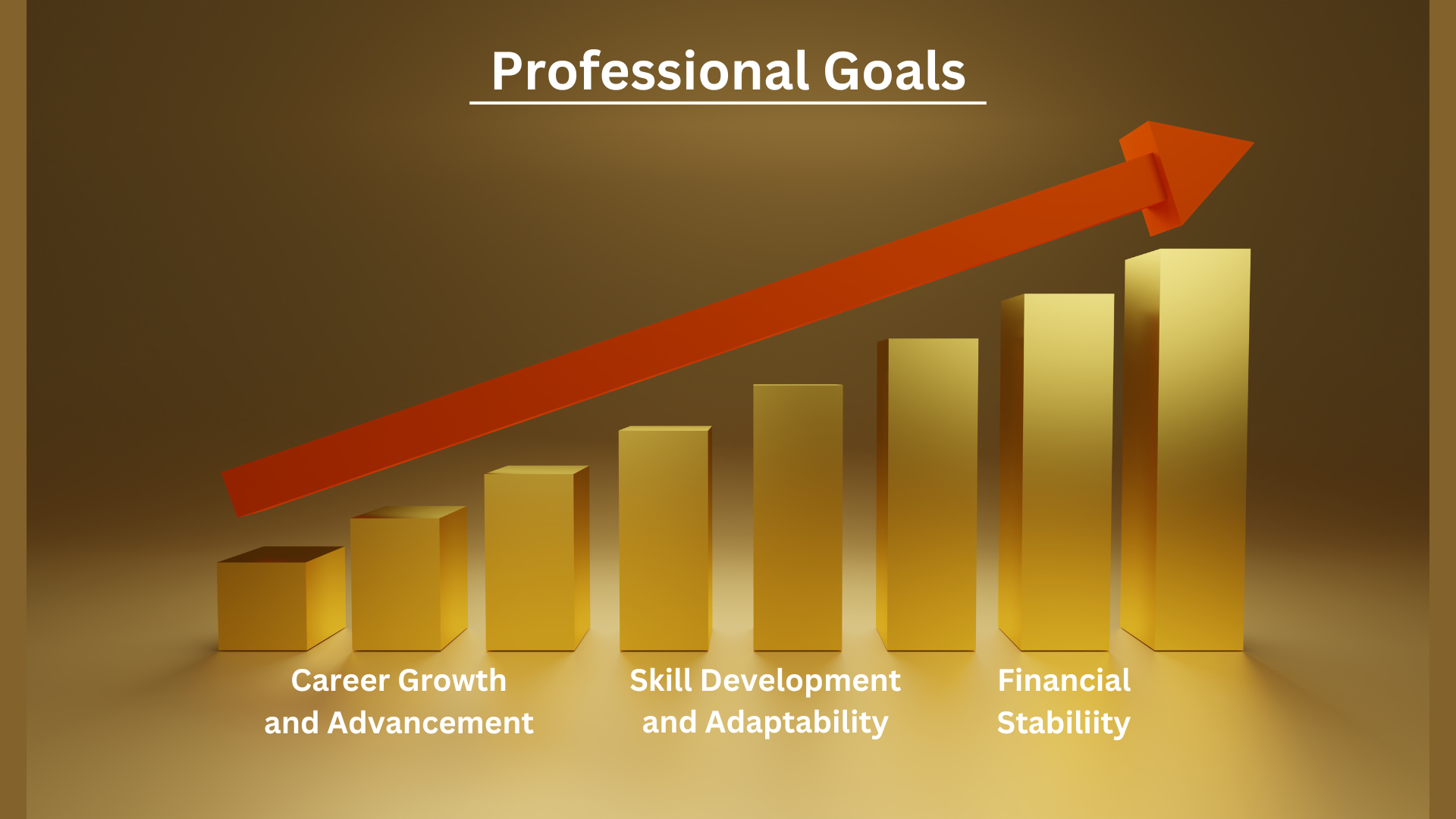
Achieving Balance for Long-Term Success:
- Setting Priorities: Individuals must prioritize their goals based on their values and aspirations. Understanding which goals are most important at a given time allows for effective time management and allocation of resources.
- Integration and Synergy: Rather than viewing personal and professional goals in isolation, seek ways to integrate and create synergy between the two. For example, finding a career that aligns with personal passions can enhance job satisfaction and overall life fulfillment.
- Adaptability and Flexibility: Life is dynamic, and goals may need to be adjusted over time. Embracing adaptability and remaining flexible in the pursuit of both personal and professional objectives is essential for long-term success.
- Regular Reflection and Assessment: Periodically reflecting on one's progress, reassessing goals, and making necessary adjustments are vital practices. This self-awareness ensures that individuals stay aligned with their values and continue to evolve in both personal and professional spheres.
How Can Coaching Make a Difference?
Despite their differences, personal and professional goals share a common factor: both are designed to help you achieve a milestone you have set for yourself. A great resource to help you reach your ultimate destination is professional coaching. A coach will work with you to lay out what you ultimately want to achieve, and guide you along as you work to make your goal a reality.
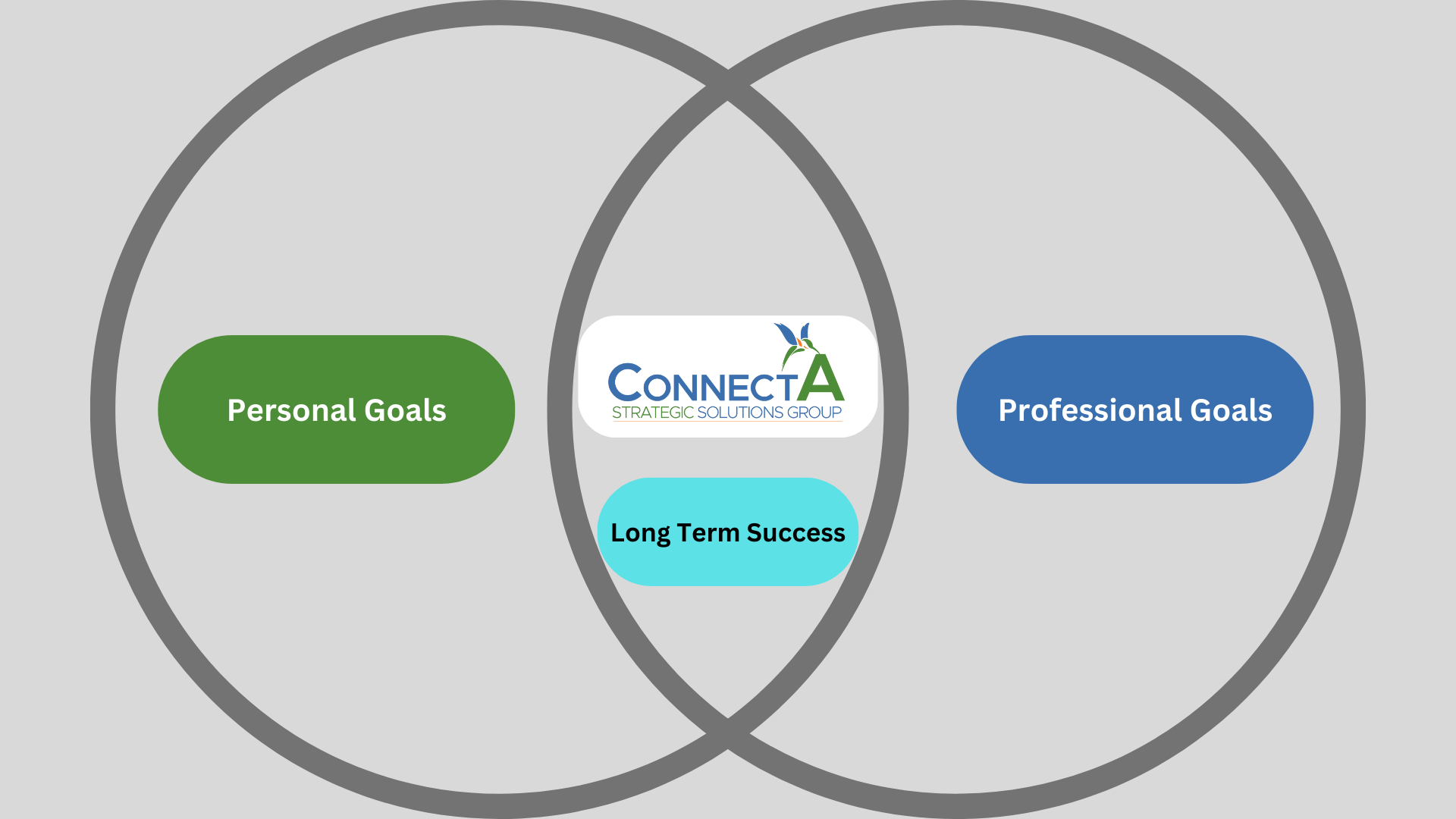
Conclusion:
In the journey towards long-term success, recognizing the symbiotic relationship between personal and professional goals is paramount. Balancing these two aspects of life involves conscious effort, prioritization, and adaptability. By nurturing personal well-being alongside professional growth, individuals can create a harmonious and fulfilling life that extends beyond the confines of their careers. In essence, true success lies in the integration of personal and professional aspirations, fostering a holistic and sustainable approach to a meaningful life journey.

